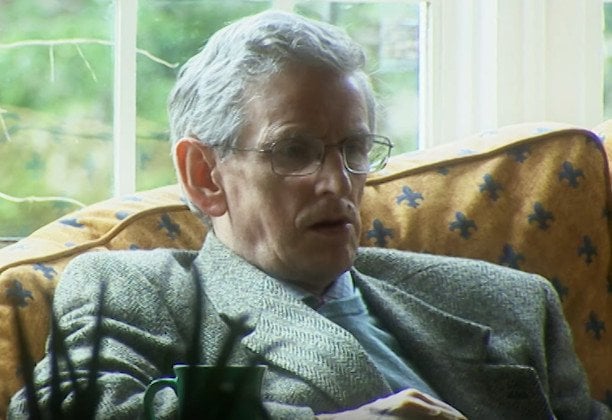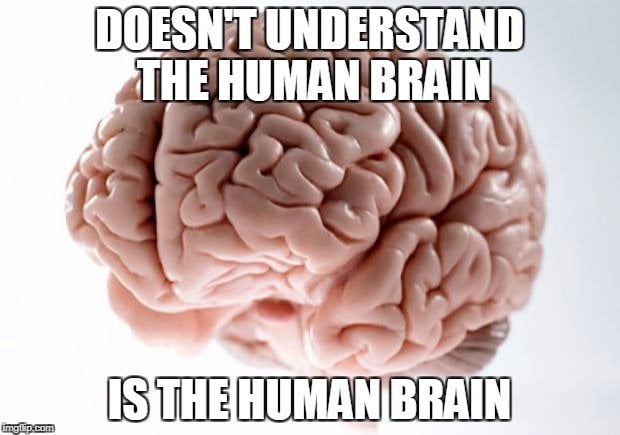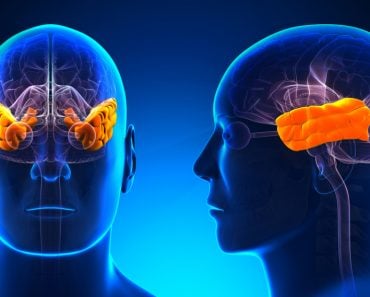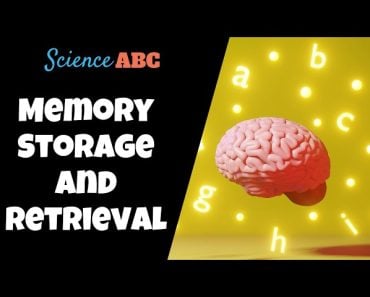Table of Contents (click to expand)
Amnesiacs tend to forget their language because they suffer from anterograde amnesia, which is a type of amnesia that prevents them from forming new memories.
Amnesiacs tend to strongly retain childhood memories, which seem to be cemented by time. That being said, they are known to register new ones, albeit only semantic ones.
50 First Dates is one of the most popular romantic comedies in recent decades. The film is a typical rom-com; it celebrates love, it is (moderately) funny and it is highly unrealistic. Still, it isn’t inaccurate. Barrymore’s portrayal of an amnesiac is surprisingly top notch, unlike protagonists in ridiculous drama or action films who are purged of their amnesia after a blow to the same spot on their head where an earlier blow caused it. This is convenient for the plot of fiction, but not real life.

In the film, Barrymore’s character is unable to form new memories after she suffers a horrific accident. This is a particular type of amnesia known as anterograde amnesia, although they preferred to call it Goldfield’s syndrome, a completely made-up term. The ailment causes a patient to become stuck in time. Time is relative in that sense, however. Where Barrymore forgot everything new each day, a patient in the film quite aptly called ’10-second Tom’ forgot everything in only ten seconds. This isn’t an exaggeration. British musician Clive Wearing suffered from a type of amnesia that rebooted his system every 7 seconds.
Another type and the most commonly found is retrograde amnesia. Unlike anterograde amnesia, people who suffer from retrograde amnesia can form new memories, but they suffer from memory loss that renders them unable to remember past events, faces, names and experiences. Both types of amnesia are caused by either brain damage brought on by accidents, severe psychological trauma or neurological diseases.
Anterograde amnesiacs can only remember past experiences up until the accident, whereas retrograde amnesiacs not only forget what happened recently, but the parser stretches further and effaces what lies beyond as well. Many retrograde amnesiacs know the depressing truth about their feeble memory, but anterograde amnesiacs forget that difficult, repeatedly learned truth each time they retreat to square one in whatever time frame their mind is stuck in.

Anterograde amnesia is known to impede the medial temporal lobe and certain areas of the hippocampus, a part of the brain involved in storing short-term memories. This sheds some light on why patients with this type of amnesia cannot encode new memories. More precisely, patients form short-term memories but are unable to transmute them into long-term memories. Only immediate information is retained – and soon forgotten. Retrograde amnesia is a consequence of brain damage to areas near the hippocampus. Any amnesia is therefore caused by the disruption of pathways responsible for encoding, storing and retrieving, or damage to these critical parts.
However, one might have noticed that, despite the extensive memory loss, amnesiacs don’t forget how to talk. Isn’t confabulating the act of thinking, recalling and arranging words in a sentence and vocalizing it? This seems impossible without any access to memory. Yet their ability to retrieve verbs and nouns and coerce language to their whims is still intact. How is this so?
Recommended Video for you:
Semantic And Episodic Memories
A discussion about amnesia would be incomplete without delineating the nature of memory. Neurologists divide memories into two classes, either procedural or declarative. Procedural memories, as the name suggests, are concerned with procedures. Their acquisition involves a combination of cognitive and motor skills. This would include riding a bike, driving a car or tying your shoelace. Declarative memories, on the other hand, are concerned with facts such as the sky is blue or Jurassic Park was released in 1993.
The cognitive and motor skills involved in procedural memories, with repeated access, become progressively unconscious and implicit. Declarative memories tend to operate on the surface — they demand conscious or explicit access. Furthermore, declarative memories come in two sub-classes: episodic and semantic.

Episodic memories provide an account of our first-person experiences, the what-where-when of an event. These memories heavily rely on context and strengthen each time we relive them. They have a self-referential and autobiographical quality that is absent from other memories. Semantic memories are pure facts, without any source or contextual tags. While episodic memories would involve your experience learning math, semantic memory only involves the generic content you learned, such as 2+2=4.
Why Does Language Persist?
Semantic memories store long-term knowledge of words and object meanings. Damage to parts that store semantic memories would cause you to tie your shoelaces without the conceptual knowledge of what a shoe actually is. However, these memories are unaffected by amnesia, which only foils episodic memories. The semantic nature of language is why an amnesiac might forget how much he adores apples, but not what an apple is.
A word is engulfed in an emotional sludge as it passes through the viscous filter of subjectivity. Essentially, language seems to be symbolic, with an arbitrary word-meaning methodology. In the absence of an emotional crust, lexical knowledge becomes semantic knowledge. This fundamental knowledge is represented within semantic memory. In fact, a great deal about semantic memory has been learned by studying the nuances of language processing.

Furthermore, language also seems to be procedural, to a certain extent. It seeps into the unconscious after recursive usage. Of course, semantic memory doesn’t exist entirely isolated from episodic memory. Our memories are so haphazardly entangled with the web of subjectivity that escaping it is impossible. Still, amnesiacs retain enough semantic or associative structures of language to use them unhindered.
Clive Wearing is known to be the most tragic case of amnesia, for he was tragically afflicted by both retrograde and anterograde amnesia. However, Wearing, despite his amnesia, could recall playing the piano and orchestrating, even though he had no recollection of ever receiving a musical education. Another way to put this is to say amnesiacs tend to preserve habits, rather than experiences or facts.
A loss of language is instead a symptom of aphasia, where the semantic memory is damaged. Consider Broca’s aphasia, where the patient understands a language but doesn’t know what to say – words callously betray him. Or, there is Wernicke’s aphasia, where the control of a language’s structures is intact, but the patient speaks meaningless hogwash. Still, the reach of language is so deep, and the urge to express is so primitive, so rooted within us, that without verbal language, patients can effectively communicate through non-verbal descriptions – by gesticulating and drawing.
The Self
Amnesiacs tend to strongly retain childhood memories, which seem to be cemented by time. That being said, they are known to register new ones, albeit only semantic ones. Researchers claim that amnesia isn’t characterized by a loss of memories, but rather a failure to retrieve them. They aren’t forgotten, but merely inaccessible. Patients have repeatedly illustrated that they become progressively better at puzzles, despite having no memory of previously solving them. They mysteriously retain how memories, but forget what memories. No medical treatment to cure amnesia has been found yet; doctors only hope for the best by improving a patient’s memories.

The notion of memories also entails something that has been a perennial source of introspection and wonder. The essence of the self, our personal identity, has perplexed us since antiquity. The central question is what makes a vague memory of an 8-year-old you packing a school bag with his books the same person as you are at this moment, despite harboring completely different ideologies, appearance, milieu and even biological cells. Despite being biologically and metaphysically different, what makes these two different organisms across time the same being – what makes you you? What accounts for this connectedness?
Descartes believed that personal identity existed separately from our experience, in a Cartesian Ego, a soul. Hume, on the other hand, believed that identity was nothing eccentric, but merely a sum of experiences, a psychological continuity of memories. We are just our thoughts and our memories. Hume believed that it is the nature of memory that dupes us with an illusion of a persisting self, one existing separately from our experiences.

Hume’s proposition is remarkable, but more importantly, courageous, for it was implicitly refuting Christianity’s eternal promise. However, his view became progressively more plausible as we became more knowledgeable about the brain’s intricate workings through neurology. One should not confuse amnesia with dementia, where the sense of self somehow erodes. Family members often claim that the patient is no longer his old self. Amnesia, an extensive loss of memory, strangely, spares his victims of this atrocity. Why? Honestly, we don’t know. The mysteries of memory, subjectivity and self-awareness continue to elude us.
References (click to expand)
- Klein, S. B., & Nichols, S. (2012, July 1). Memory and the Sense of Personal Identity. Mind. Oxford University Press (OUP).
- Cognition and Brain Lab: Semantic Memory - internal.psychology.illinois.edu:80
- McRae, K., & Jones, M. (2013). Semantic Memory. Oxford Handbooks Online. Oxford University Press.
- Breakdowns: Amnesia, Agnosia, Aphasia Summary Prepared .... The University of Delaware













